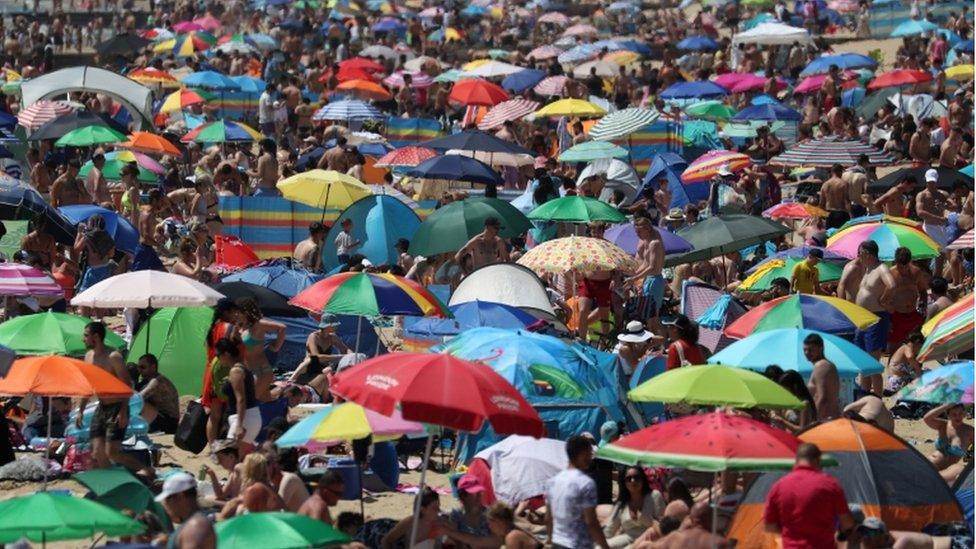Hayling Island: Criminals choose beach clean over prison
- Published
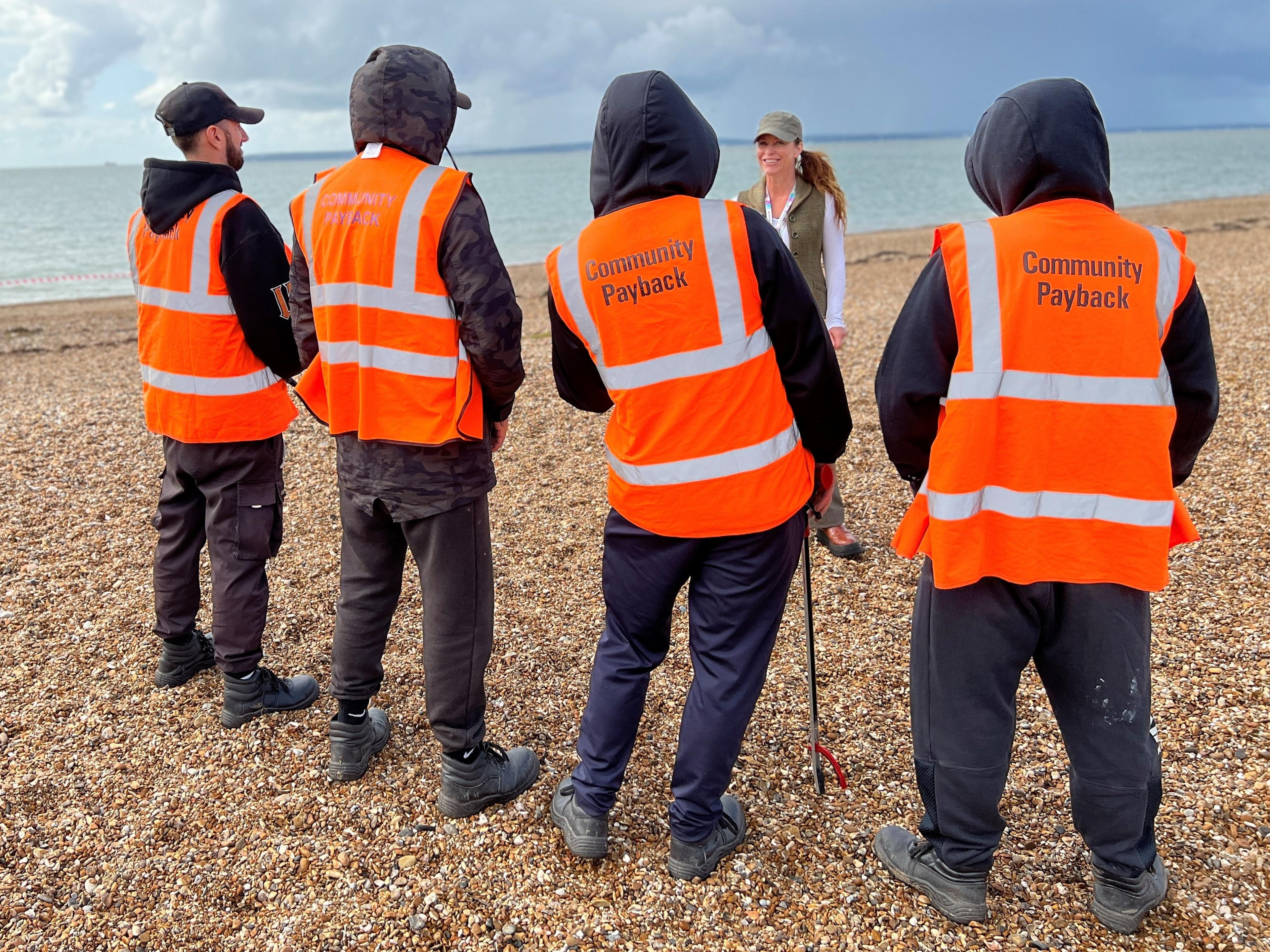
The clear up is part of the Marine Conservation Society's annual Great British Beach Clean
Criminals have been clearing rubbish from a south-coast beauty spot instead of going to prison.
Litter was removed from a beach at Hayling Island, Hampshire, as part of a national scheme which sees offenders avoiding jail sentences by repaying communities for the harm they caused.
The Community Payback project saw the felons collect items like wet wipes and plastic bottles from West Beach.
The recovered rubbish will be logged by The Marine Conversation Society.
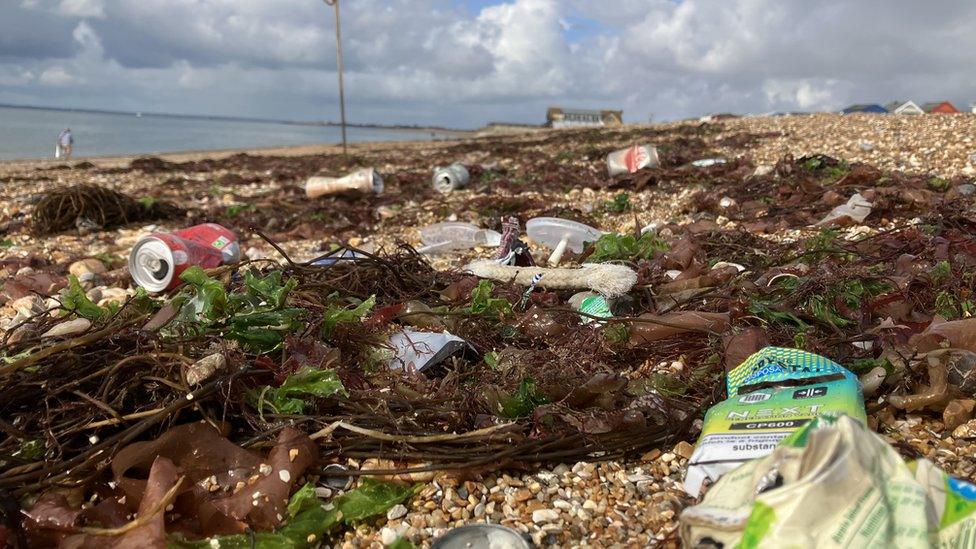
This year marks 50 years since the launch of the first Community Payback project
One offender collecting rubbish on the Hayling Island beach said he thought the community sentences were a "better alternative" to putting young people behind bars.
He said: "It gives people that one last opportunity to change their ways before they do go to prison."
Courts hand down more than 50,000 unpaid work sentences each year to punish offenders for crimes including theft, criminal damage and alcohol-related incidents.
The £93m scheme, external sees the Probation Service partnering with organisations like the Marine Conservation Society to give communities a greater say in how justice is served.
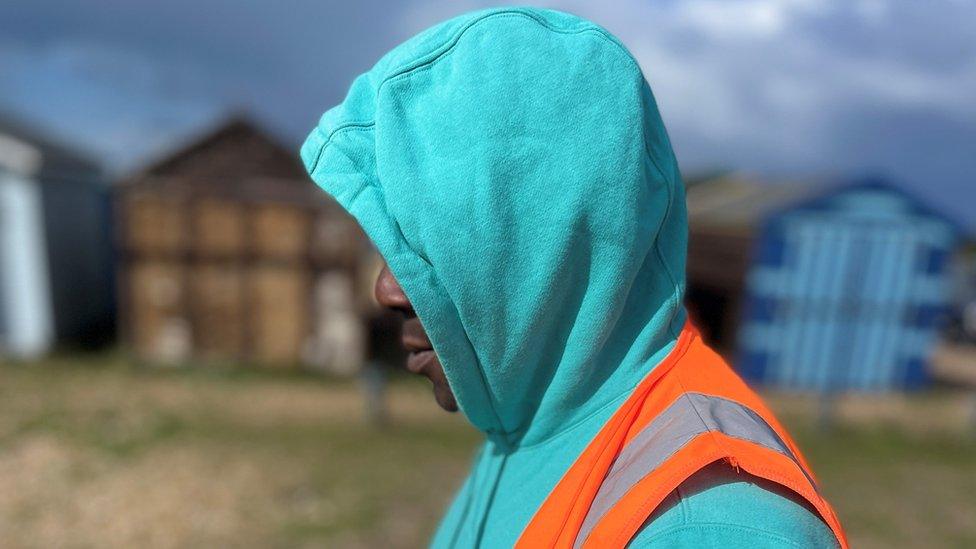
Some of the offenders on the Hayling Island beach agreed the scheme was a better alternative than prison
Emma Gelson, project co-ordinator for the Probation Service, said it gave criminals the chance to rehabilitate.
She said: "Community service is all about serving your local community.
"The beach shouldn't look like this and I completely think that probation service and community service is the way forward."
Another offender agreed, adding it "felt good" to give back to the local area.
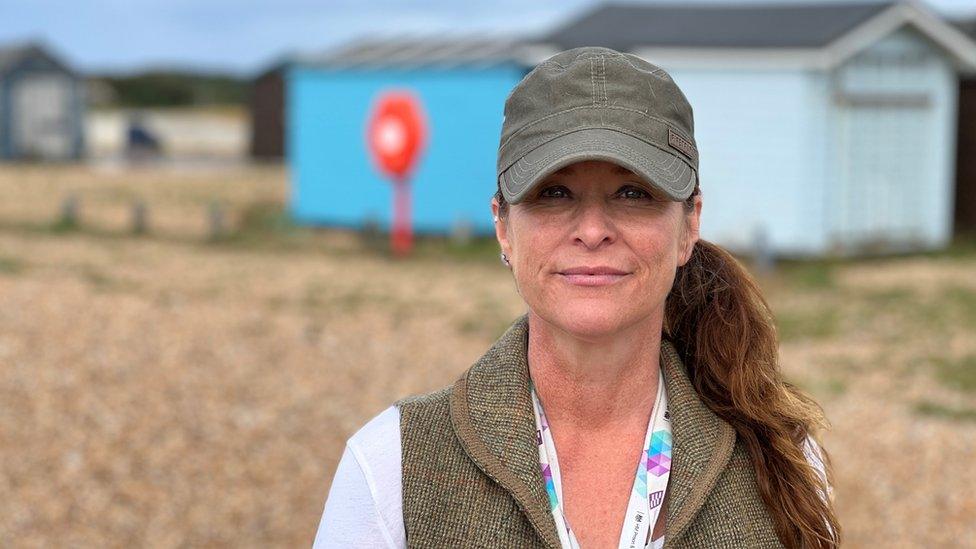
Emma Gelson from the Probation Service oversaw the clean-up on the Hayling Island beach
Damian Hinds, prisons and probation minister, visited the team collecting the litter on the Hampshire seafront.
He said it was "really important" to have an alternative option to prison, as sometimes short sentences can make things worse.
"The community gets a cleaner beach, alleyways, a painted village hall and graffiti cleared off a subway.
"It is part of a punitive sentence giving back to society," he added.
After logging the items of rubbish, the Marine Conversation Society will use the data gathered to help them understand information about the main pollutants on the British coastline.

Follow BBC South on Facebook, external, Twitter, external, or Instagram, external. Send your story ideas to south.newsonline@bbc.co.uk, external.
Related topics
- Published12 August 2023
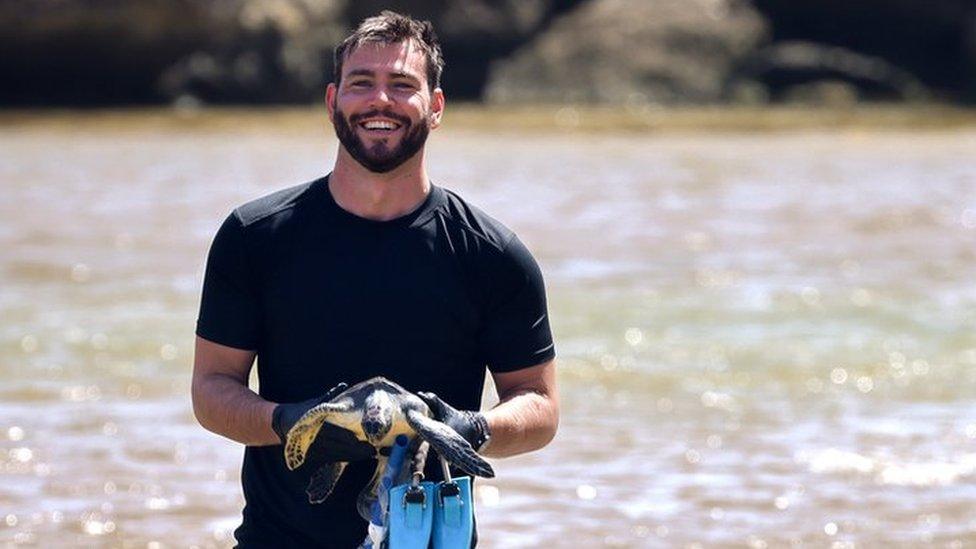
- Published26 July 2023
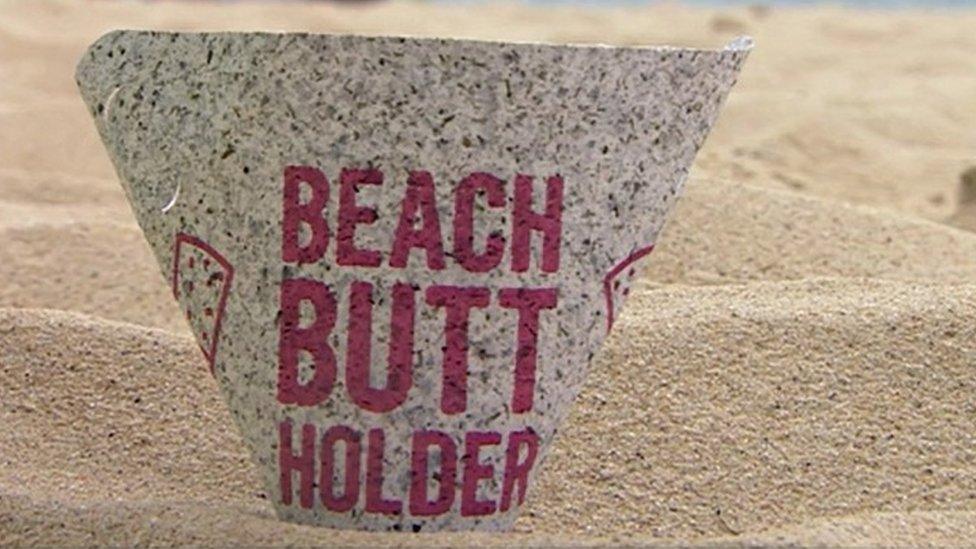
- Published27 May 2023
